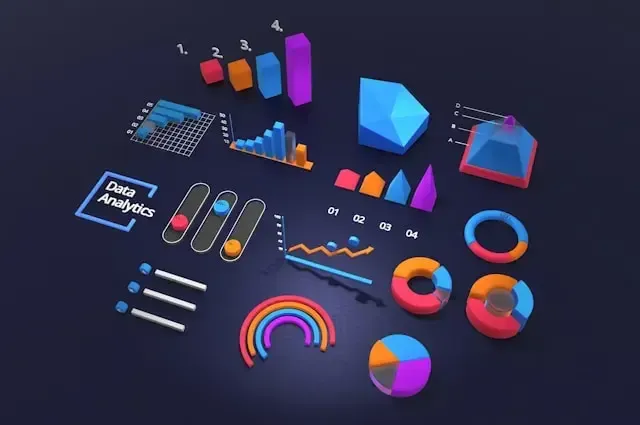Imagine you living in such a way that very little waste would be generated. That's the beauty of zero-waste living!
Zero-Waste Living for Beginners: Where to Get Started and What to Avoid
Tired of seeing the bins full with trash, plastic filling up the oceans, and landfills swallowing Earth? Imagine you living in such a way that very little waste would be generated. That's the beauty of zero-waste living!
It is an exciting journey toward reducing your environmental footprint and living more sustainably. The following guide will walk you through ways you can confidently and gracefully enjoy a zero-waste life.
Zero-Waste Living: What it Means
Zero waste living is living life with minimal production of wastes. Its goal is always to send as minimal trash as possible to landfills because of adhering as close as possible to the 5 Rs, namely:
- Refuse what you don't need
- Reduce what you do need
- Re-use what you can
- Recycle what you can't refuse, reduce, or reuse
- Rot-compost the rest
Not perfection but an intentional act of decisions toward reduction, responsible consumption, and building towards a better future.
Why Go Zero-Waste?
An average person generates over 4 pounds of garbage each day that goes straight to landfills or contaminates the oceans. Zero-waste living helps fight such ills by reducing one's contribution to personal waste.
Besides, it instills good practice in you that is sustainable in conserving resources and reducing pollution, hence protecting wildlife. The zero-waste living may also save you some money by cultivating mindful consumption.
Many find that as they work their way towards zero-waste living, they become more connected to the planet and satisfied with the mere living.
Other stress-lessening ways can be attributed to the absence of superfluous purchases and general simplification in life, all of which would move a person toward a much healthier relationship to material possessions.
How to Begin Zero-Waste Living
Analyze Current Waste
Before you get started with the zero-waste life, take a minute and notice what's currently in your trash.
For a week, keep track of exactly what you're throwing out and in what amount. This will give you an idea as to where precisely you need to concentrate your efforts.
Make Small Changes
Zero-waste living involves nothing but doable changes that can actually make a big difference. Here are the things you can get started with:
- Use a refillable water bottle rather than buying plastic ones. Replace plastic bags for grocery shopping with cloth carry bags.
- When taking out coffee, bring in your container or mug. Replace plastic straws with reusable metal or bamboo straws.
Refuse Unwanted Items
This is the utter first and foremost. Just say no to single-use plastics, unwanted junk mail, and free stuff that contributes to landfill waste. Whenever possible, avoid packaging, excess plastic, and things you just don't need.
Buy in Bulk
Buying in bulk bypasses so much packaging and is sometimes even cheaper. Bring your own containers and bags into stores that allow you to use bulk bins.
In this way, you will be able to get grains, nuts, spices-even cleaning supplies-without contributing further to plastic planet build-up.
Make Use of Re-Usable Home Products
Invest in items that are lasting, re-usable, and will replace single-use products in the process. Consider using the following alternative:
- Instead of using paper towels, using cloth napkins
- Instead of using plastic wrap, use silicone food wraps
- Instead of using plastic disposable bags, use glass containers Instead of using cling film, beeswax wraps.
- Instead of using a paper coffee filter, use a reusable one.
Composting Organic Waste
Composting represents one of the easiest strategies under the rubric of trash management in the kitchen. It could be either by means of a small installation of the compost bin in your home or merely by researching where to drop off compost in your community.
Top Mistakes Beginning Zero-Waste People Make to Avoid
Buying Too Much of "Eco-Friendly" Products
Probably the biggest trap that beginners fall prey to when trying to live zero-waste is the temptation to go on buying sprees of things on eco-friendly or "sustainable" products that are simply not needed.
There is no need to rush out and buy a bamboo toothbrush, metal straws, or mason jars because it is trending for things to do. Zero-waste living is about the overall reduction of consumption and not about replacing one kind of shopping with another.
Tip: You can start with what's in your pantry and then begin the investment in zero-waste alternatives. Repurpose old containers or reuse items before buying new ones.
Thinking You Have to Be Perfect
Perfection is the enemy of progress. You may want to challenge yourself to go completely zero-waste this very instant, but that's unrealistic.
Not everyone can compost or even shop at bulk stores. And that's okay. Do what you can, where you can-improve as you go along-and just know that every little helps.
Focusing Only on Plastic
While plastic reduction is key, zero-waste living is so much more than that. The waste reduction in food and water consumed can go down to even your clothes.
Reach for the reusables first, but don't forget to reduce food waste, conserve energy, and buy secondhand clothes as a way to minimize your footprint on the environment.
Feeling Overwhelmed by the Rules of Zero-Waste
It's so easy to get bogged down with the rules of zero-waste living: 5 R's, composting, upcycling, plastic-free, minimalism; it starts to become very overwhelming if you allow it to be.
But, the key to it all lies in one word, flexibility. Zero-waste living is different for every single person, so don't let yourself get caught up in the idea of doing it by the book.
Practical Alternatives to Single-Use Plastics
Reusable Shopping Bags
Simple switch, powerful switch. Carry with you a few heavy-duty reusable bags wherever you go shopping. You can use them for grocery, clothes, or any other purchase. Most shops sell them, but you also make them from old fabrics.
Stainless Steel Water Bottles
Instead of buying plastic water bottles all the time, use a stainless steel water bottle that will last. It is kinder on the environment, plus it keeps drinks cold or hot for hours.
Mason Jars and Glass Containers
Glass containers are the items in which one could store leftovers of food or carry drinks without using plastic containers.
They are further non-breakable as compared to their plastic alternatives and are said to be much safer when it comes to food items. They may be reused multiple numbers of times .
Menstrual Cups
A reusable menstrual cup replaces both tampons and pads for anyone looking to reduce menstrual product waste. Hygienic, it will last for many years henceforth, reducing plastic waste by a long shot.
Bar Soaps and Shampoo Bars
Replace soap and shampoo that comes in plastic bottles with their solid alternatives. Not only do these dismiss plastic, but they also can tend to last a great deal longer. Many stores are now offering eco-friendly options boasting all-natural ingredients.
Advantages of Going Zero-Waste
Adopting a zero-waste lifestyle has lots of fantastic benefits, far beyond just reducing your trash, if you are motivated to take action-be it by any environmental concern or even a desire to save money and live more simply and healthily.
There are many good aftereffects in transitioning towards going completely waste-free. Let us begin with some of the main ones herein.
Environmental Benefits
a. Reducing Pollution and Conserving Resources
If you reduce your waste, then lesser amounts would flow into a landfill or ocean. Plastic takes up to hundreds of years to decompose and hence contributes much to pollution in harming the wildlife.
In fact, every time you reduce waste, you are actually helping to preserve natural resources. For instance, manufacturing raw materials requires water, wood, and even fossil fuel.
Every time you decide to reuse or to recycle materials, you lessen the demand for such raw materials, thereby allowing these natural resources to be more available in higher quantity for future use.
b. Reduced Emissions
It is the wastes we produce that are responsible for the emissions of harmful greenhouse gases, especially those sent to landfills or incinerated, including methane and carbon dioxide that help bring on global warming.
By reducing your waste, you directly help reduce those emissions. It is all about saying no to single-use plastics and shifting toward products with lower environmental impacts as a means of doing your part to slow down climate change.
c. Conserved Marine Life
Equally astounding is the amount of plastic projected to enter and ultimately reach the oceans, stands at 8 million metric tons per year. It will ultimately kill sea turtles by entanglement or other types of marine life after they have been ingested via fish.
By reusing and reducing plastic waste, you save marine ecosystems and a range of species. Such as switching from plastic bags to reusable ones; the chances of those plastic bags finding their way into the oceans and choking or poisoning sea life are reduced.
Financial Benefits
a. Saves Money
Contrary to most people's thoughts, going zero-waste could really save them money in the longer run. Most zero-waste products require an investment upfront, whereas they last much longer than their disposable counterparts.
Products like beeswax wraps or cloth towels replace plastic wrap or paper towels, which one is forced to purchase every now and then.
Another way zero-waste living saves you money is by buying in bulk. Generally speaking, items in bulk tend to be cheaper per unit compared to a pre-packaged item of a similar nature.
You will reduce food waste because of better planning, using leftovers, and composting; thus, you save money on grocery bills.
b. Mindful Consumption
Zero-waste living allows you to be more conscious about your consumption in avoiding impulse buying; instead, you pay more attention to quality over quantity.
You're very aware of what you purchase to ensure you invest in something you truly need and will be able to use. This is often manifestly fewer purchases, less clutter, and larger savings.
Health Benefits
a. Reducing Exposure to Toxins
Certain chemicals, especially from single-use plastics used for food and drinks, contain toxic chemicals such as BPA and phthalates. These may cause anything from disturbed hormones to reproductive problems and even some types of cancers.
You will reduce exposure to such toxins once you switch into much safer reusable materials like glass, stainless steel, and natural fibers that make zero-waste living even healthier for you and your family.
b. Eating Fresher, Healthier Food
From the foundation of waste-free living, you are more likely to purchase unpackaged food such as fresh fruits, vegetables, and grains. This comes as a green alternative to buying those foods that are processed and packaged in plastic with additives and preservatives.
The change in the trend leads to a much healthier diet because, from it, you end up consuming more whole foods rather than ingredients of processed foods.
Social and Community Benefits
a. Means of Supporting Companies That Are Ethical
Zero waste is a global principle that would make people more conscious about what to buy.
Moving away from mass-manufactured products, you are most likely to move into companies that are ethical and local, with sustainability and environmentally friendly practices in view.
Most zero-waste products are from small businesses or companies that have very open, very ethical supply chains.
Your well-earned money would be in the pocket of companies which truly care for people, as well as this beautiful Earth-to let them practice a decent labor practice to conserve the environment.
b. Inspiring Others
By living zero-waste, you become an ambassador of sustainability within your circle.
Be it word of mouth among family and friends, over social media through tips, or involvement in local zero-waste initiatives-anything you pick up might just start a chain of conscious actions among people.
Small individual acts of behavioral change can ultimately rise into deep cultural changes, therefore encouraging even more people to take up less production of waste and lead a sustainable life.
c. Community Links
Zero-waste living tends to be more about community involvement. You may be networked into a group of likeminded people who in fact share values and goals just like your own.
From there, the relationships can then begin to blossom into partnerships or collective efforts in cleaning up the community for sustainability.
Long-term Sustainability
a. Legacy to be passed on for Generations to Come
Among the many advantages that zero-waste living can bring into the world, probably the most important would have to be the legacy it leaves behind.
Once you reduce your waste and are making less of an impact on the environment, you are offering your children and their kids to come a better future. Every little effort you put in today will help in forming a cleaner, healthier world for tomorrow.
b. Innovation and Creativity Are Encouraged
Zero-waste living is basically driven by creativity, devising ways of eliminating waste. This could be finding old stuff and turning them into new uses, creating other ways of making use of household goods, or learning creative means of avoiding plastic.
Such a life breeds creativity and problem-solving skills which will be empowered in one's life, making every living not only better to the environment but also everyday living exciting and interactive.
Conclusion
Zero-waste feels very overwhelming at the outset, but remember, it's not perfection. It is about being super present and making very intentional steps to minimize personal waste and maintain sustainability.
Every little step-be they giving up plastic straws or changing into reusable bags-you are helping build a cleaner and greener future. And that's what should be celebrated!
Now that you know where to start, take the first step in your zero-waste journey. There is only one thing to remember: it is not perfection; it's all about being aware of how to do it sustainably, with one step at a time.


























